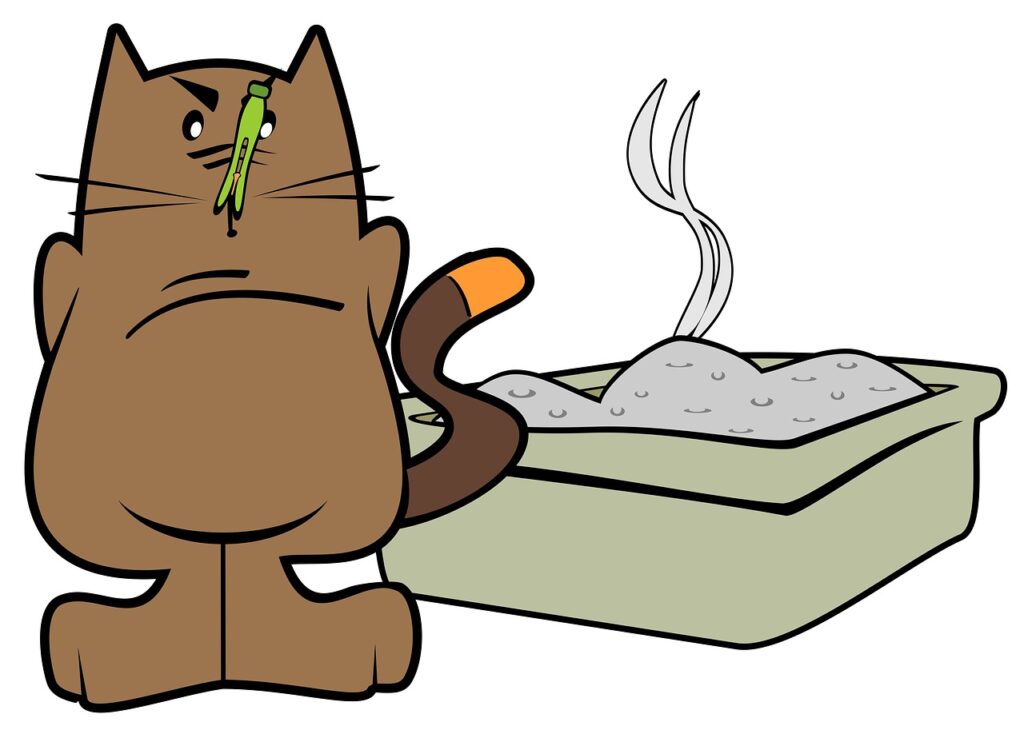Do you detect a foul odor or see a messy situation? Is your cat avoiding the litter box? Heres how to solve common litter box problems in cats.
Owning a cat has many benefits, including the convenience of not having to take your pet outside to relieve themselves. A litter box provides a convenient solution for your feline companion to use whenever necessary, with the only requirement being that it is kept clean and hygienic.
Occasionally, however, a cat may refuse to use the litter box and instead use other areas of your home as a toilet. If this happens, it is important to stay calm and assess the situation to identify the root of the issue. There are various reasons why a cat may not use the litter box, and determining the cause is the first step in resolving the problem.
Thoroughly Clean Your Cats Litter Box
Ensuring that your cat’s litter box is clean is crucial in encouraging your feline friend to use it consistently. Waiting too long to scoop out the waste and eliminate the associated odors can cause your cat to seek out other, more sanitary places to eliminate. If you’ve ever had to use a dirty public restroom, you can understand your cat’s perspective.
If your cat has been urinating or defecating outside of the litter box, start by checking the cleanliness of the litter. Make sure to scoop out the box at least once a day or even multiple times a day if you have multiple cats. Additionally, it’s important to completely empty and wash the litter box every couple of weeks or as needed. By maintaining a clean litter box, you’ll ensure that your cat feels comfortable and confident using it.
Your Cat May Be Sick
It’s important not to get angry with your cat when they exhibit inappropriate elimination behavior because it could be a sign of an underlying medical issue. For instance, a painful urinary tract infection can make your cat associate the litter box with pain, causing them to avoid it and use alternative places to relieve themselves.
Diabetic or kidney disease-afflicted cats may feel thirstier and need to urinate more frequently, sometimes even failing to make it to the litter box on time. Similarly, liver conditions and thyroid disease can cause similar issues in your cat. Digestive problems may also lead your cat to eliminate around the house because they can’t hold it in.
If you can’t identify the root cause of your cat’s behavior, such as a dirty litter box, you should take them to the vet as soon as possible for a comprehensive examination. Inappropriate elimination can be a symptom of serious medical conditions that require immediate attention and treatment.
Changes in Your Cat’s Life
If you’ve recently brought a new cat into your home, your resident feline might be feeling irritated at having to share their litter box with another cat, which could cause them to eliminate outside of the box. To solve this problem, consider providing an additional litter box that your older cat can use exclusively. Make sure you continue to give them love and attention so that they don’t perceive the newcomer as a threat.
Another possible reason for your cat’s bathroom problems could be a recent change in litter. Your cat may not appreciate the new litter and choose to avoid the box altogether. If you’re planning on changing your cat’s litter, try to do it gradually. Mix a small amount of the new litter with the old one and gradually increase the amount of new litter over the course of several days or weeks.
Stressful events can also cause your cat to avoid the litter box, so it’s crucial to remain patient and try to understand your cat’s thoughts and feelings. Once you’ve identified the cause of the problem, you can make the necessary changes to encourage your cat to use the litter box once again.

